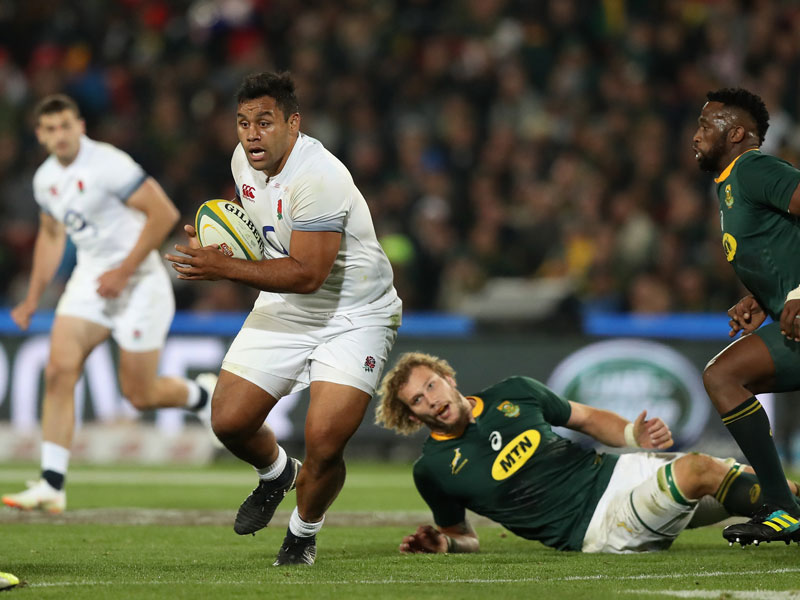The All Blacks Sevens team has always given players a stepping stone to the Test arena, but DJ Forbes tells Oliver Pickup change may be afoot.
Could The All Blacks Pathway From Sevens To Test Rugby Soon Be Closed?
When the world’s number-one ranked rugby union nation, New Zealand, narrowly defeated England 16-15 at Twickenham last November, there was a zinger of a statistic that was trumpeted by growing legions of sevens supporters across the globe.
Five of the All Blacks’ seven starting backs, or 71.4 per cent to be exact, had all represented their country at international level in the abridged version of the sport. That handful – in more ways than one – were Beauden Barrett, Sonny Bill Williams, Jack Goodhue, Rieko Ioane, and Ben Smith. Together they have hitherto amassed 231 Test caps.
On the surface, this stat would seem to serve up compelling evidence that the rich heritage of catapulting sevens stars to the Test arena is in rude health in New Zealand. But a deeper dig uncovers a contrary trend.
Ioane, the 21-year-old wing who has dotted down 22 tries in only 24 Tests, is the latest in a long list of All Blacks to have graduated from the sevens circuit. Almost exactly three years ago, the teenager crossed for a brace of tries in the last three minutes as his country came from 21-7 down to pip South Africa 24-21 and be crowned HSBC New Zealand Sevens in the penultimate tournament held in Wellington.
Previously, the likes of Jonah Lomu, Christian Cullen, Joe Rokocoko, Julian Savea, and Mils Muliaina – five contenders for inclusion in an all-time world XV – have been propelled to stardom by sevens. However, the pathway from sevens to Test rugby is becoming closed off, according to one of the greatest and committed sevens players in history.

In form: Andrew Knewstubb runs with the ball against South Africa this season
DJ Forbes, skipper of the All Blacks Sevens for a decade until his retirement in 2017 – under his leadership New Zealand triumphed at the Commonwealth Games in 2010 and, three years later, the World Cup, alongside chalking up six Sevens Series titles – contends that because the variations of the oval-ball game are growing apart there will be far fewer crossover athletes in the future.
Speaking on the eve of the HSBC New Zealand Sevens, which takes place in Hamilton this weekend (Jan 26-27), the 36-year old says: “Sevens has been used as a launchpad for players, historically, to expose their talents so they can reach the next level. Now the two sports are going their separate ways.”
The progress and status elevation of sevens has been catalysed by its inclusion in the Olympics, undoubtedly. The HSBC World Rugby Sevens Series has slowly and surely expanded the sport – and continues to do so, around the planet, not least at grassroots level – but interest exploded following its Games debut at Rio de Janeiro in 2016.
HSBC reckons “17 million new fans brought into the sport almost overnight” thanks to the Olympics, and Forbes agrees that the sudden boost of interest transformed the game’s fortunes. Now, owning to the chance of going for a gold medal, and with a (much-needed) cash injection, players are faced with a serious dilemma at the outset of their careers: sevens or 15-a-side rugby. Doing both is no longer viable.
New Zealand Rugby World Cup Fixtures, Squad, Group, Guide
Winners of the past two World Cups, the…
Opinion: Eddie Jones Must Rethink Billy Vunipola’s England Role
Ali Stokes argues that Saracens No 8 Billy…
Forbes, who bowed out two years ago after a record 89 world series competitions, having played 512 games, scored 153 tries – he is currently in 12th place in the all-time list – and notched up 26 tournament victories, continues: “There is still an opportunity to use the sevens circuit as a bit of a testing ground, but the way it is going it is turning into a specialist sport.
“With it being a full-time gig now, players have to make a decision to follow their sevens path, or the 15s path. It will be interesting to see how it develops.”

Escape plan: Tone Ng Shiu gets away from the USA in Cape Town
He adds: “It has been amazing to watch the growth of sevens around the world. It has developed so much since I made my debut in 2006.
“Being an Olympic sport, countries can apply for grants and that has changed the game. It provides the opportunity for smaller nations, who might not previously have had the resources or manpower, to get involved with rugby.”
It will be fascinating to see whether Forbes’ prediction about the number of crosscoders dwindling plays out. Four years ago, the likes of Sonny Bill Williams, Bryan Habana, and Nick Cummins, among other big names in rugby union, attempted to gain Olympic selection for their respective nations, and only Williams succeeded (before being cruelly downed by injury in Rio).
This season, in which the top four teams in the HSBC World Rugby Sevens Series rankings will gain an automatic berth at next year’s Olympics at Tokyo, there is a noticeable dearth of stellar names chancing their arms, underlining Forbes’ theory that the codes are too different these days.
Moreover, since Rio sevens has grown in confidence, and is a long way through the process of successfully unshackling itself to its elder sibling, finally.
Don’t forget to follow Rugby World on Facebook, Twitter and Instagram.








